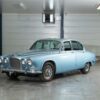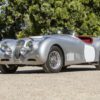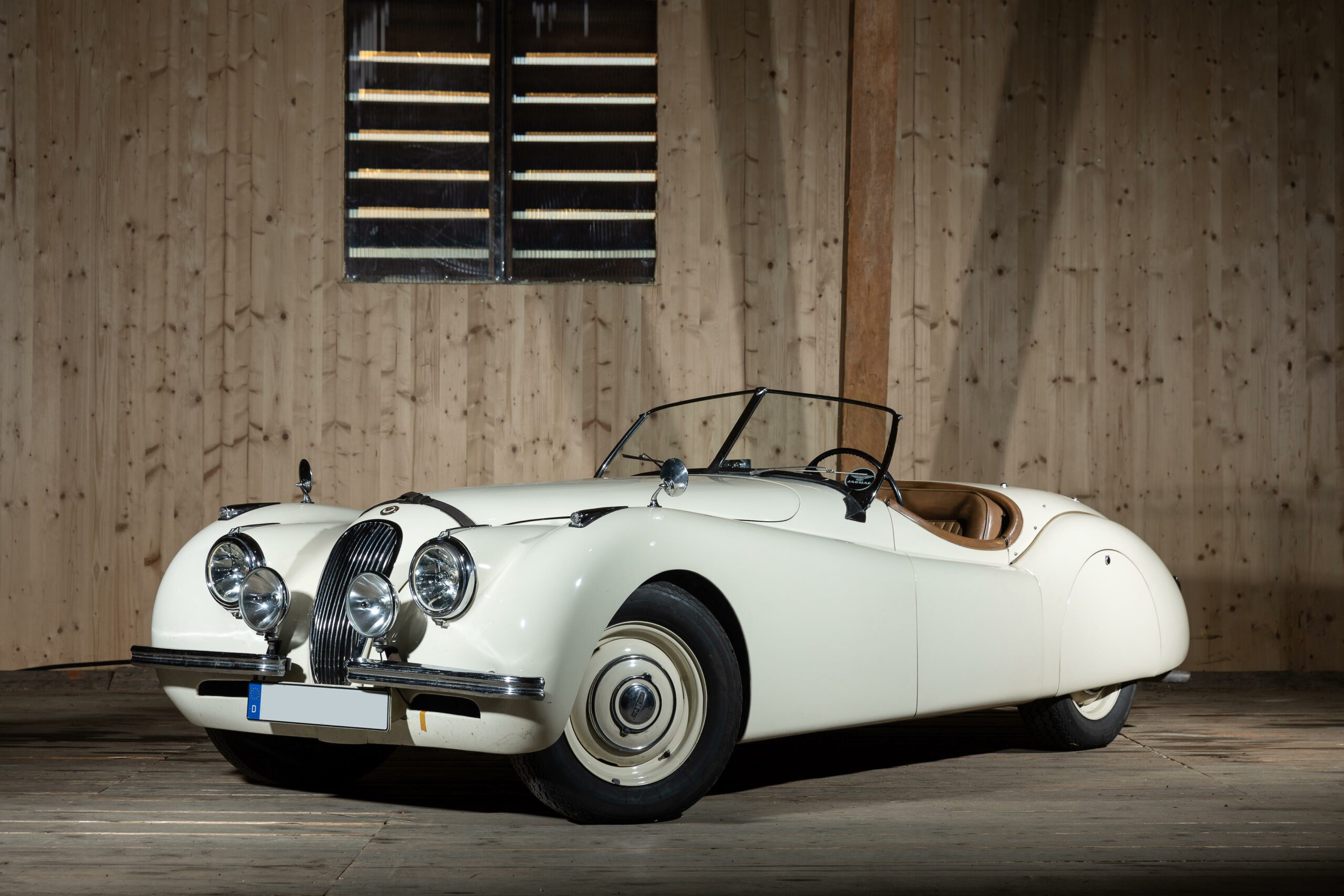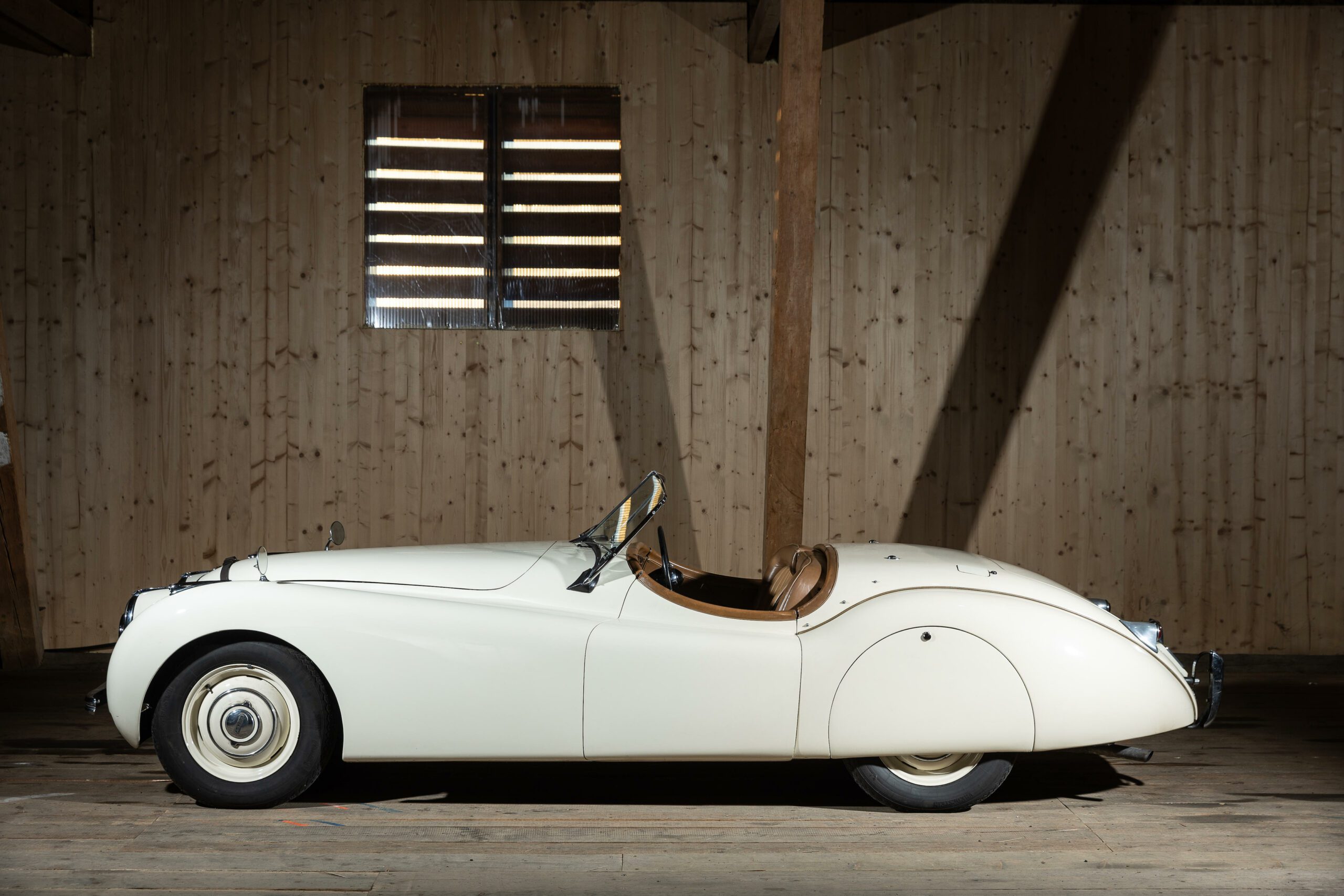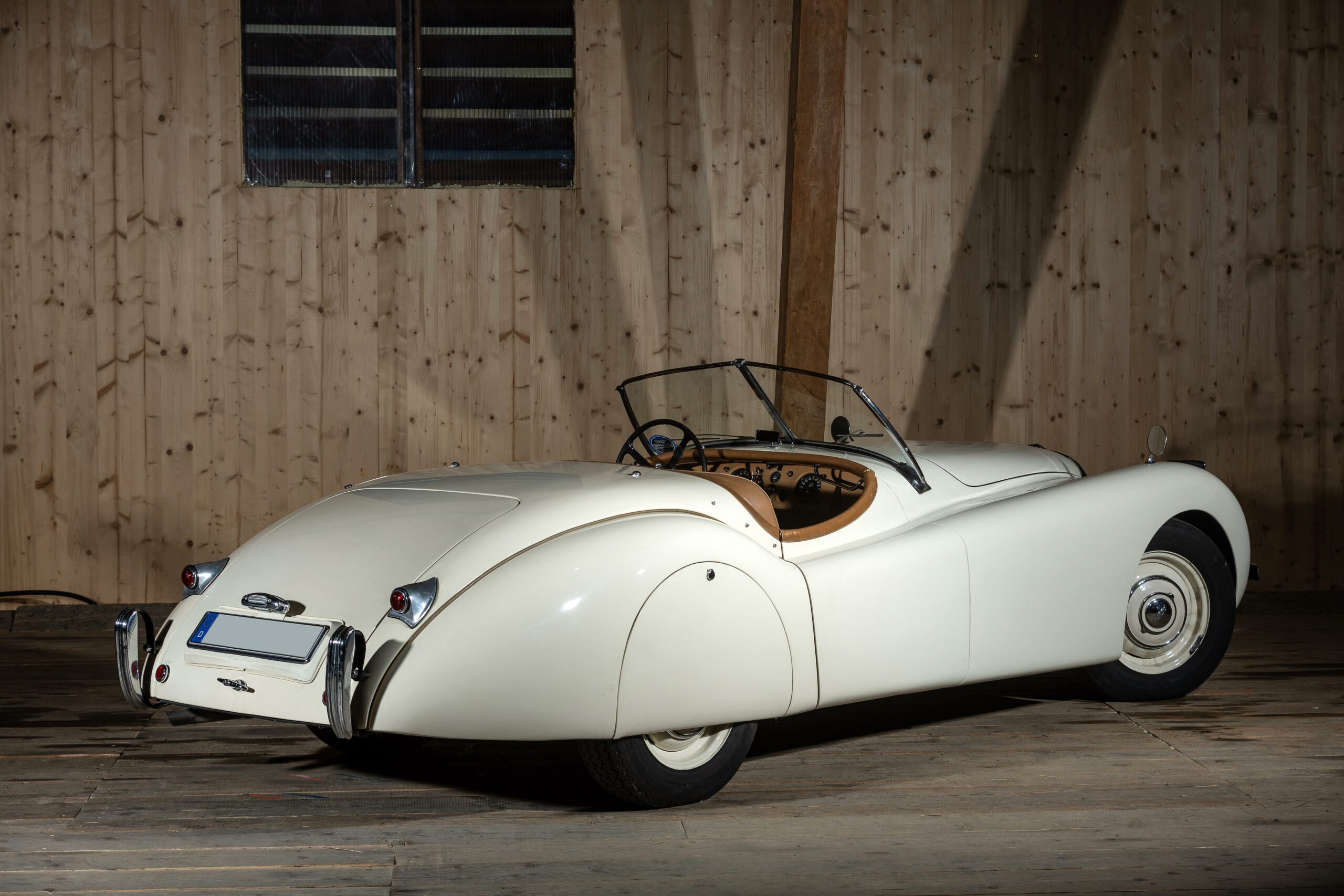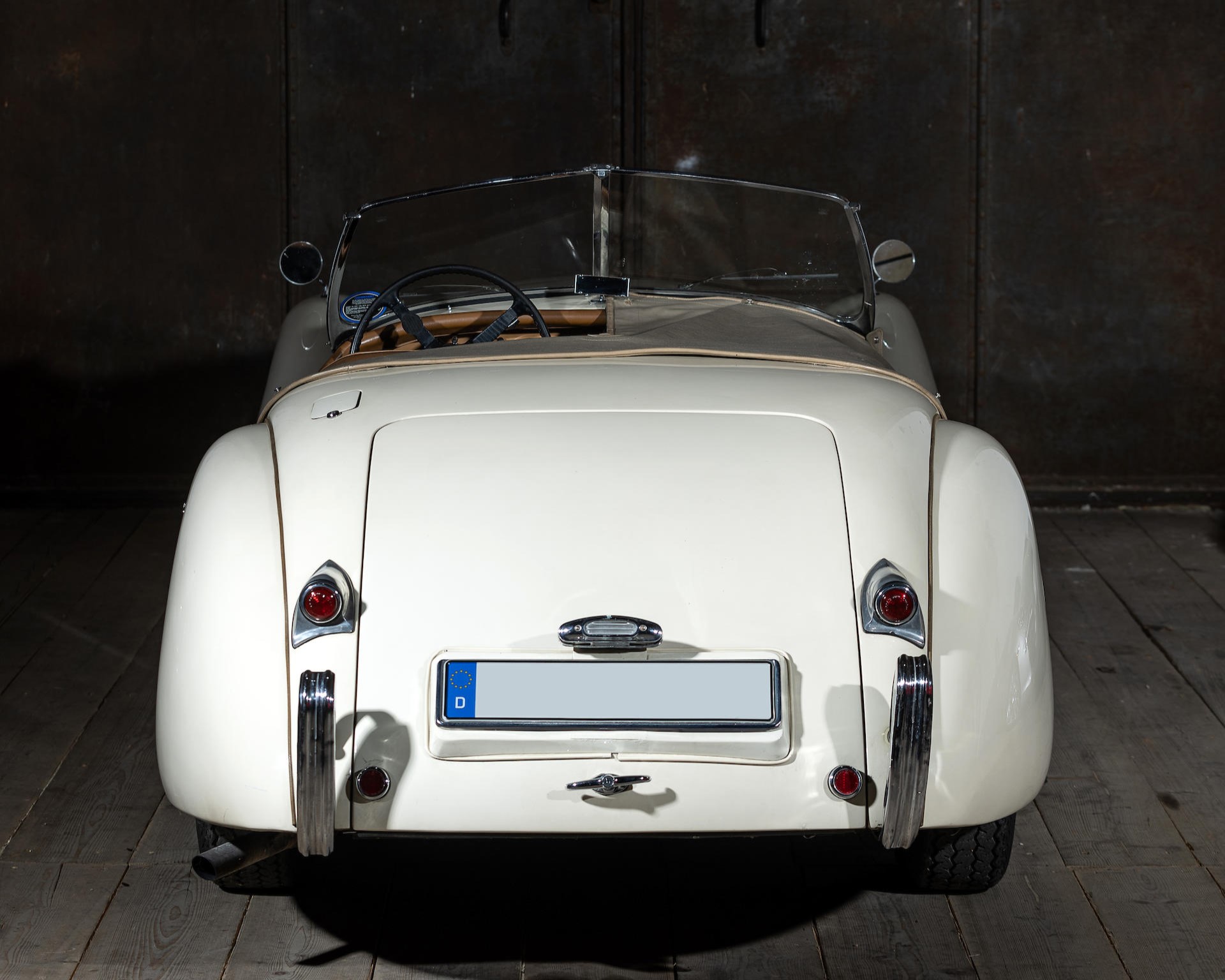Initially conceived as a low-volume model, the Jaguar XK120 became a surprise hit, setting the standard as the world’s fastest production car. Its handcrafted ash-framed alloy coachwork, following vintage traditions, had to be replaced with steel after just 240 cars due to overwhelming demand. Consequently, the rare alloy lightweight 120 has become a highly sought-after collectible.
Beneath its stunning appearance, the XK120 featured conventional elements: a separate chassis, independent front suspension with wishbones and torsion bars, a live rear axle, and drum brakes all around. However, its exceptional beauty lay in the coachbuilt aluminium structure designed by Jaguar’s William Lyons himself, initially expecting to sell just 200 XK120s in the first year.
At the core of the XK120 was the extraordinary XK engine, a 3.4-liter six-cylinder marvel with twin overhead camshafts in an aluminium-alloy cylinder head, seven main bearings, and an impressive 160bhp output. When placed in the lightweight XK120, it resulted in exceptional power-to-weight ratios and remarkable performance. The ‘120’ referred to the car’s top speed, and it swiftly proved its capability by reaching 132.6mph without weather protection during testing.
The XK120 set new benchmarks for British sports cars, offering comfort, roadholding, and performance. Coupé and drophead coupé versions followed, and the Special Equipment package increased power to 180bhp. Regardless of the body type or engine, the XK120 was a genuine 120mph car, ideal for high-speed cruising. Its popularity lasted until the end of production in 1954, with over 12,000 XK120s built, including the special alloy-bodied roadsters.
Source: Bonhams Cars



